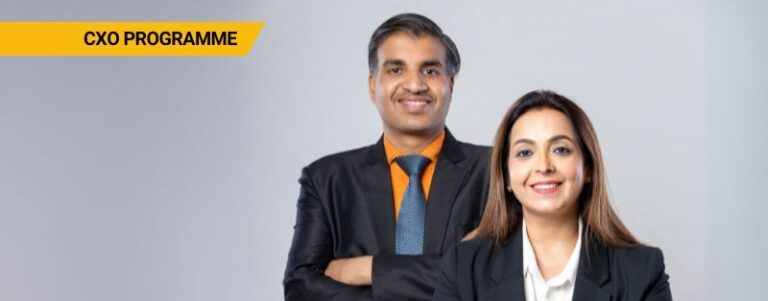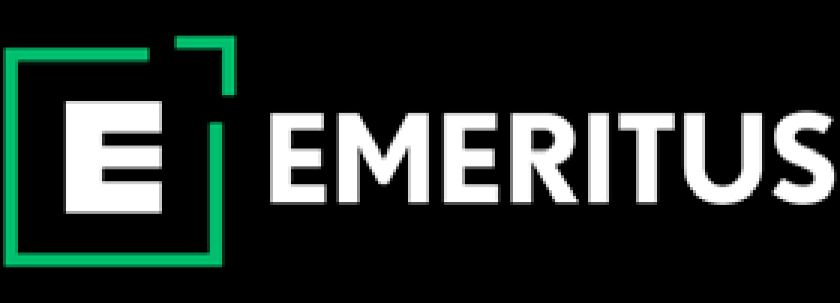Top HR Interview Questions for Freshers to start a career in HR

The elephant in the room has finally been addressed. Businesses have finally started to address the importance of the Human Resource function. The pandemic turned out to be a blessing in disguise. It raised some open-ended and unanswered questions such as employee retention, the meaning of work, work-life balance, hybrid workforce, and mental health. Not that these were unicorn questions, these were, in fact, always lurking in the backdrop. The pandemic forced everyone to deprioritize and reprioritize everything. As we face the Great Indian resignation, the criticality of human resources is quite apparent. With the spotlight on Human Resource professionals for the answers, the HR fraternity itself is facing the talent crunch, the gap in skills and expectations. Opportunities at all levels of HR have opened up. Organizations are hiring entry-level HR professionals and focusing on some critical leadership roles. It’s all happening extremely fast, and it’s happening in the NOW.
So amidst the wave of hiring and beefing up HR talent, here are some critical questions that one can expect in a typical HR interview. For all those aspiring to enter HR, this is your bible.
- Why do you want to enter Human Resources?
Tip: Talk about the structure of HR and the overview of the function. Read about various HR structures, shortlist your interest areas such as acquisition, training, compensation, etc. and align your areas to your strengths and prospects.
- What is your idea of a typical HR profile?
Tip: The question is to test the bias and prejudices attached to HR jobs. (HR jobs are easy, do not require number crunching, people who hate math accounts can take up HR jobs). Please make sure you do not fall for the trap, and your answers are connected to the first answer.
- What if I tell you that HR roles do not pay a lot (compared to business)? How will you deal with it?
Tip: it will be helpful to be aware of market standards. There is a difference between pay-out between business roles and HR roles. Be mindful of that. Avoid getting taken aback and caught off-guard. Once you know what you are getting into, your acceptance is higher.
- Are you aware of HR trends and the latest practices? Can you name 5?
Tip: While there are my HR trends, you should read more on: HR Tech, People Experience, GIG Economy, and Hybrid workforce.
- Talk to me about how is Tech redefining HR?
Tip: It is critical for people to understand how AI, robotics, and analytics redefine the HR Value Chain. Please be comfortable with disruptive technologies and their impact on the HR Value chain.
- Why not a startup or EdTech, and why only an HR career?
Tip: It’s a tricky question, so keep the career objective in mind. Stick to the career plan (if you have one). Else keep your answer specific to the role you want to do. It could be EdTech, but it will still have to be HR. Frame your solutions around your career priorities.
- What do you know about IR (industrial relations), and do you think it is necessary?
Tip: it’s essential for people appearing for FMCG, FMCD, or Manufacturing organizations. So please keep yourself updated.
- How do you think HR adds any value to the business?
Tip: Please read and work on breaking down the role of HR to how it adds value to the business. It requires you to understand business models, value chains, and revenue, models. Establish the correlation with the HR value chain and how Business objectives get broken down into HR objectives.
- What is the most important skill to be an HR Professional?
Tip: Please be ready with at least the top 5 skills for an HR professional. In my view, Emotional Intelligence, tech orientation, and business acumen are extremely important.
- What if you start working and do not like HR? What is your plan b?
Tip: Think through this question carefully before the interview. We do not want to sound unsure of our choices, yet it needs you to have a plan b ready. There are no scripted answers for this one; you will have to create a plan b for yourself. It’s important to know your strength areas, values, and what kind of occupations works for you. There are some tests available that can easily guide you.
- If you do not have an MBA HR degree, why not do an MBA in HR and then come for a job?
Tip: be ready with the answer beforehand. MBA is sometimes important; if you do not have one, be prepared with mature and objective answers. It’s important to be firm, clear, and decisive in your responses. It’s ok to say, “I would like to explore and get hands-on experience in HR and then go for a degree” Avoid saying, “I haven’t thought of it; the company came to campus, and my friend was also appearing.”
- You do not have a master’s degree; what if you resign next year and decide to do your MBA?
Tip: Be clear about your MBA plans. If it’s a year-long association, I recommend you change your plans. It’s never a good idea to lie at the start of the process and then quit later. Be honest if they can offer you a contractual role for a year, if weekend MBA provisions exist, if it’s a regular MBA for you, then be honest always.
- As a fresher, what can we expect from you regarding skills and attitude?
Tip: It’s a tough question. Hence it needs you to be self-aware and display the right attitude, communication skills, and confidence. The game for a fresher is played at personality and grooming levels. The ability to demonstrate knowledge about the industry, organization, trends, and patterns is a differentiator.
- How will you differentiate yourself from the others sitting outside?
Tip: Last part of question no 13 answers this differentiation part.
Human Resources Courses
- You seem to have an excellent track record of extra circular activities; talk to me about your learnings and experiences.
Tip: Do not artificially beef up the resume. If you have many things written, they might as well justify them. It’s not a good sign when the resume is heavy, but the dialogue is not. Reflect beforehand on how these activities helped you and gave you confidence, exposure, and maturity. Keep the answers crisp and succinct.
- You have taken at least ten plus courses (or any other number). Can you give me an in-depth view of any of the top 3 courses?
Tip: These days, many people take random courses from various platforms. Please keep the learning ready; you need to be able to justify the list and the intent. Having certificates is not enough; one should be able to have a conversation about the skills. So be ready or shorten the list and stick to your strengths.
- Why did you go on course shopping? Was there a plan behind it?
Tip: You can blame it on free time, covid or schools shut, or free resources available, but then yet again, you will have to justify the time spent. I would prefer you to paint rather than take courses which we do not remember later. So do make sure justifications are tight and crisp. There is no harm in having a list until you know what they taught you.
- What is the future of HR?
Tip: This needs intensive research. Read the article by HBR – Top 20/25 future jobs in HR. It will offer some ideas. Also, read about the GIG economy and what it will do to the talent pool.
- You have done some nice internships; let’s talk about your experiences.
Tip: Good names; brands need to be backed by good stories. So, list down your achievements and learnings and be ready to articulate them effectively. You might have worked with Google, but if you didn’t do much, one has no interest in it.
- You do not seem to have any extra curriculum activities and interests; why would that be?
Tip: Well-rounded professionals are preferred at times. So, if you have no hobbies or passions, then get a few. Make a genuine attempt to start pursuing something; however, if you haven’t, then do not die under the guilt. Be honest about it, but if you can, share a plan to expand your horizons or interest areas. Do not hesitate to share unorthodox interests as well. It’s fine to use gaming as an example. Make sure you know stuff about gaming. Timepass is not a hobby.
- What’s your plan for the next two years?
Tip: Talk about skills, exposure, and experience. The conversation should revolve around how you will groom yourself into a professional in terms of skills, attitude, and on-the-job experience. Avoid going on the road of designations and money. It’s also ok to be specific to forex: data science or make it industry-specific; for ex: I see myself in the ed-tech. Be a bit careful if you intend to create your startup. A host-term vision for the job with your long-term startup vision might go against you.
- Explain a typical HR structure to me.
Tip: A typical HR structure has the following functions:
- Talent Acquisition – Responsible for recruiting and meeting manpower needs.
- Talent Development – Responsible for training and upskilling employees basis the business needs and strategy.
- Performance Development – Responsible for running the performance measurement system to evaluate and develop employees’ basis for their yearly performance.
- Compensation & Benefits – Responsible for salary benchmarking and ensuring fair and equitable pay as per market standards.
- Diversity and Inclusion – Responsible for overseeing D&I initiatives and ensuring the organization becomes more inclusive and not just diverse.
- Employee Engagement – Responsible to engage employees at the workplace and providea meaningful experience
- What are some of the new HR jobs?
Tip: The new age HR jobs which were coined in the last few years were:
- People Experience and Culture
- HR Data Analytics and Intelligence
- Mental Health Officer
- Hybrid Workforce Manager
- Diversity and Inclusion officer
- People Advisor
- Who do you look up to in the space of the HR fraternity?
Tip: Please follow some relevant profiles on LinkedIn and get to appreciate their viewpoints and thought processes. You must follow Simon Sinek, Gary Vaynerchuk, and Harvard Business Review for articles. Edward De Bono for creativity. Peter Senge for Systems thinking and Ram Charan. It is advisable to follow people from your relevant industries. These could be eminent CHROs or CLOs from the organizations you wish to work for. Avoid throwing names; rather, talk about their ideologies, interesting research, and new-age practices.
- What are your views of employee motivation, satisfaction, and experience?
Tip: Please answer, keeping the current pandemic in mind. There has been this noise of great Indian resignation; one must understand why people leave. The impact of startup culture on employee experience, motivation, and its pressure on the talent market. It is advisable to understand the challenges every organization faces in motivating and keeping people satisfied. Forex” meaning of work, deriving fulfilment from jobs, maintaining work-life balance, and offering a world-class experience to new and tenured employees are a few points to keep in mind.
- How can you help in redefining policies for employees?
Tip: Talk about reverse mentoring when it comes to redefining employees. Policy needs to devise by asking what the millennials want and what would keep them happy. Secondly, policies need to factor in diversity and inclusivity. With organizations opening doors for LGBTQ and offering equal platforms to new mothers, it’s important to align the policies accordingly.
- If I were to tell you, a person like you would not be happy in HR, you should shift to sales. How will you react and deal with the situation?
Tip: It’s a trap question. Please be self-aware and talk about strengths and skill sets that match the job and align with the HR roles. You need to know the ground realities in the HR domain. Only then can this trap be diffused.
While these questions are to the point, and pertinent, none of these tips should be memorized. You do not need to parrot these answers word by word. These are tips to tackle these questions with maturity and sensibility. Apply your knowledge, read more, research, and think about business problems and solutions. The tips are guideposts to nudge you in the right direction. Remember, it’s just a nudge. It’s you who will have to walk the path.
———————————————————————————–
As the role of HR assumes more importance in the post-pandemic era, upskilling yourself with the latest trends in this field is critical. Learn the latest in this field when you enrol in an HR leadership programme from Emeritus. Join a cohort of professionals from top organizations, transition to leadership positions and drive strategic HR initiatives within your business.
~ Ankit Jhamb | HR Leader






